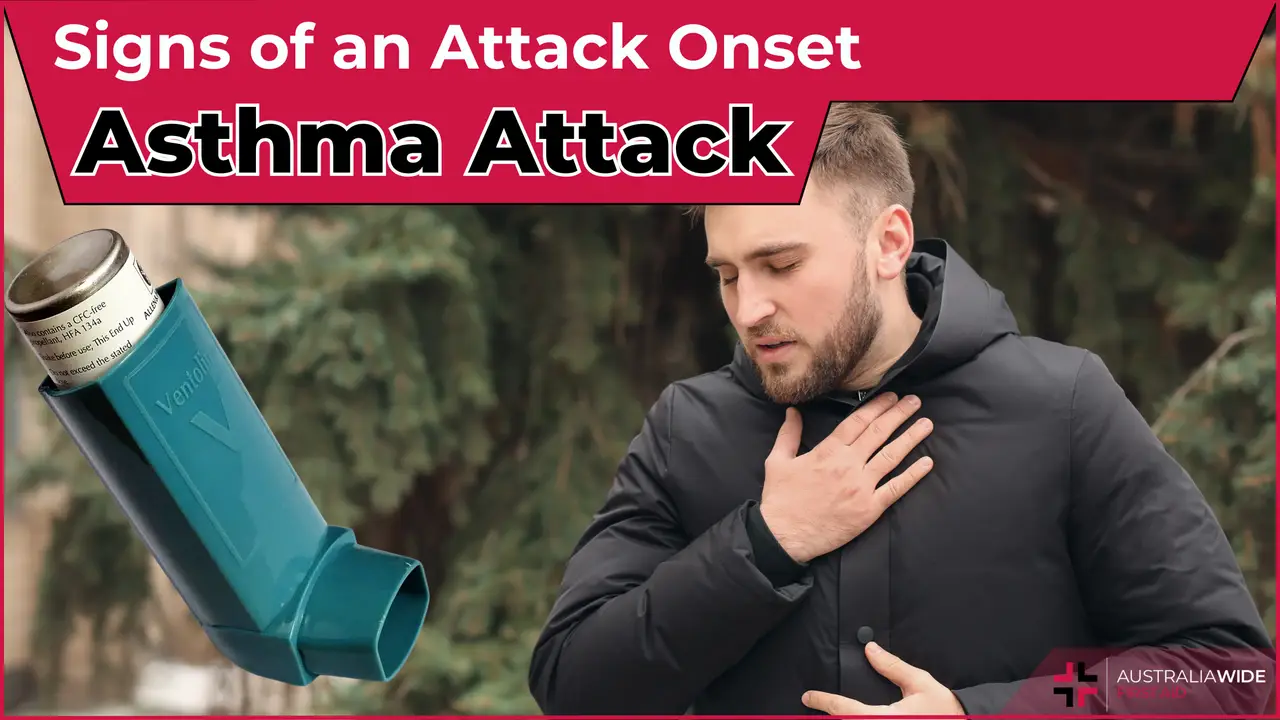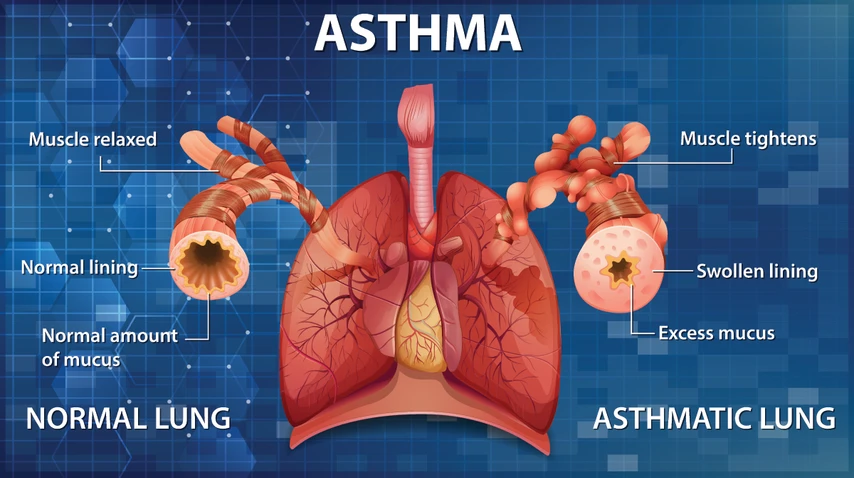Signs of an Asthma Attack Onset


Being able to recognise the signs and symptoms of an asthma attack onset is crucial to preventing an asthma emergency.
Although asthma is a very treatable and manageable condition, in some cases it can be fatal without proper attention. If you or someone you know has asthma, having a solid understanding of the signs and symptoms may help you stop a dangerous situation from developing.
In 2019, asthma caused 421 deaths in Australia.
Due to a number of asthma awareness groups and a wide range of educational initiatives, this number fell to 378 back in 2011. The numbers fluctuate every year, but currently are increasing. In order to keep this number on the decline people need to take the appropriate preventative measures and learn the warning signs of an asthma attack onset.

During an asthma attack, the airways become constricted by tightened muscles and the inside lining of the airways becomes swollen and produces thick, sticky mucus.
The most common and obvious signs of an asthma attack include:
If you or someone else is having a severe asthma attack you should call 000 immediately.
Symptoms of a severe asthma attack include:

By reading this article you have taken the first step in preparing yourself and becoming aware of asthma attack symptoms. Asthma symptoms vary from person to person.
If you have asthma you should talk with your doctor to establish what your particular symptoms are. This will allow you to know when you are about to have an attack so that you can act quickly.
To manage your asthma effectively you can also create a written asthma action plan. This will allow you to control your asthma so that you have fewer attacks, fewer sick days and less hospital visits.
If your partner or loved one has asthma you should familiarise yourself with this plan so that you can identify when they might be having an asthma attack onset and how to respond.
If a person at your workplace has asthma, it can be very beneficial to know what their symptoms are, and what their action plan is. Your WHS person should have a record of your own plan, if you have one, for the workplace.
Asthma emergencies can be frightening, confusing, and even life-threatening. Arm yourself with the knowledge of how to recognise and treat an asthma episode and asthma emergency with our fully-online Asthma First Aid course.
Or if you need asthma knowledge and skills for your workplace, our Workplace Asthma Management and First Aid gives you the skills and knowledge to be able to develop an asthma risk assessment and emergency management strategy to handle asthma episodes in the workplace. If you want to go one step further, our Workplace Asthma and Anaphylaxis Management and First Aid course also includes what you need to know about allergies and anaphylaxis.
All of our online courses can be completed at your work desk or in the comfort of your own home, with a Certificate of Completion to hand to your employer, put on your resume, or simply give you the peace of mind knowing that you can actually be helpful in an emergency situation.
If a person has suffered a severe asthma attack, you may need to perform CPR.
Australia Wide First Aid provides first aid & CPR courses in multiple locations across major Australian cities - find out more:

October 2, 2013
In an asthma or anaphylaxis emergency you should know the symptoms, remove triggers, and know how to respond. Read on to understand these important aspects in the context of such an emergency.

May 7, 2024
Asthma, a chronic respiratory condition affecting millions worldwide, is often shrouded in myths and misconceptions. Despite how common it is, there is a distinct lack of common knowledge. This is leading to potential mismanagement and unnecessary anxiety for those living with asthma.

February 19, 2024
For many Australians, our city and outdoor lifestyles come with a hidden challenge – dust allergies. Dust mites, pollen, and other airborne particles can trigger allergic reactions, affecting a significant portion of the population.